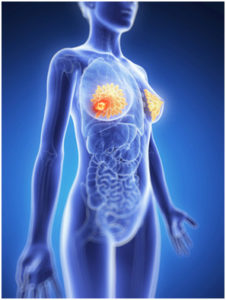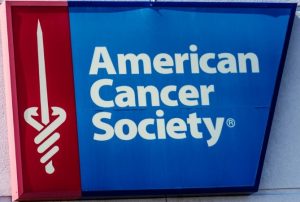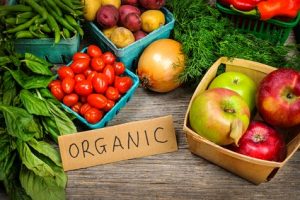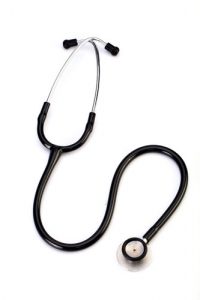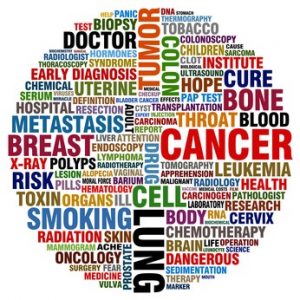Which Fat Is Healthiest?
Author: Dr. Stephen Chaney
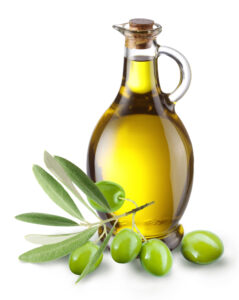 If you believe the headlines, olive oil is a superfood. It is often described as the star of the Mediterranean diet. It is referred to as the healthiest of dietary fats. Is this true, or is it hype?
If you believe the headlines, olive oil is a superfood. It is often described as the star of the Mediterranean diet. It is referred to as the healthiest of dietary fats. Is this true, or is it hype?
Olive oil’s resume is impressive:
- It is rich in monounsaturated fatty acids, which…
-
- Are less susceptible to oxidation than polyunsaturated oils.
-
- Make our arteries more flexible, which lowers blood pressure.
-
- Lower LDL-cholesterol levels, which reduces the risk of heart disease.
- Extra-virgin olive oil contains phytonutrients and tocopherols (various forms of vitamin E), which…
-
- Have anti-inflammatory properties.
-
- Improve insulin sensitivity and blood sugar control.
- Olive oil consumption is also associated with healthier gut bacteria, but it is not clear whether this is due to olive oil or to the fact that a Mediterranean diet is also richer in fresh fruits, vegetables, and whole grains.
Several recent studies have shown that olive oil consumption is associated with a lower risk of heart disease. However, these studies were conducted in Mediterranean countries where the average intake of olive oil (3 tablespoons/day) is much greater than in the United States (0.3 tablespoons/day).
The current study (M Guasch-Ferré et al, Journal of the American College of Cardiology, 79: 101-112, 2022) was designed to test whether:
- The amount of olive oil Americans consume decreases the risk of heart disease.
- Whether olive oil consumption had benefits beyond a reduction in heart disease risk.
How Was This Study Done?
 This study combined data from 60,582 women enrolled in the Nurses’ Health Study and 31,801 men enrolled in the Health Professionals Follow-Up Study). The participants:
This study combined data from 60,582 women enrolled in the Nurses’ Health Study and 31,801 men enrolled in the Health Professionals Follow-Up Study). The participants:
- Were free of heart disease and diabetes at the start of the study.
- Were 56 at the start of the study with an average BMI of 25.6 (Individuals with BMIs in the 25-30 range are considered overweight, so they were at the lowest end of the overweight range).
The Nurses’ Health Study and Health Professional Follow-Up Study are both association studies, meaning they looked at the association between olive oil consumption and health outcomes. They cannot directly prove cause and effect. However, they are very strong association studies because:
- Every 2 years, participants filled out a questionnaire that updated information on their body weight, smoking status, physical activity, medications, multivitamin use, and physician-diagnosed diseases.
- Every 4 years, participants filled out a comprehensive food frequency questionnaire.
- In other words, this study did not just rely on the participant’s lifestyle, dietary intake, and health at the beginning of the study, as so many association studies do. It tracked how each of these variables changed over time.
The participants were followed for an average of 28 years and their average olive oil intake over those 28 years was correlated with all-cause mortality and mortality due to specific diseases.
- Deaths were identified from state vital statistics, the National Death index, reports by next of kin, or reports by postal authorities.
- Causes of death were determined by physician review of medical records, medical reports, autopsy reports, or death certificates.
Does Olive Oil Help You Live Longer?
 During the 28 years of this study:
During the 28 years of this study:
- Olive oil consumption in the United States increased from an average of ~1/3 teaspoon/day to ~1/3 tablespoon/day.
- Margarine consumption decreased from 12 g/day to ~4 g/day.
- The consumption of all other fats and oils remained about the same.
As I mentioned above, olive oil consumption was averaged over the life of the study for each individual. When the investigators compared people consuming the highest amount of olive oil (>0.5 tablespoon/day) with people consuming the least olive oil (0 to 1 teaspoon/day):
- Mortality from all causes was decreased by 35% for the group consuming the most olive oil.
However, the group consuming the most olive oil also was more physically active, had a healthier diet, and consumed more fruits and vegetables than the group who consumed the least olive oil.
- After correcting for all those factors, mortality from all causes was decreased by 19% for the group consuming the most olive oil.
The authors concluded, “We found that greater consumption of olive oil was associated with lower risk of total…mortality… Our results support current dietary recommendations to increase the intake of olive oil…to improve overall health and longevity.” (I will fill in the blanks in this statement once I have covered other aspects of this study)
The authors also said, “Of note, our study showed that benefits of olive oil can be observed even when consumed in lower amounts than in Mediterranean countries.”
Are There Other Benefits From Olive Oil Consumption?
 The study didn’t stop there. The investigators also looked at the effect of olive oil consumption on the major killer diseases in the United States and other developed countries. When they compared the effect of olive oil consumption on cause-specific mortality, they found that the group who consumed the most olive oil reduced their risk of dying from:
The study didn’t stop there. The investigators also looked at the effect of olive oil consumption on the major killer diseases in the United States and other developed countries. When they compared the effect of olive oil consumption on cause-specific mortality, they found that the group who consumed the most olive oil reduced their risk of dying from:
- Cardiovascular disease by 19%.
- Cancer by 17%
- Respiratory disease by 18%.
- Neurodegenerative disease (cognitive decline and Alzheimer’s disease) by 29%.
-
- The reduction in neurodegenerative disease was much greater for women (34% decrease) than for men (19% decrease).
With this information I can fill in one of the blanks in the author’s conclusions: “We found that greater consumption of olive oil was associated with lower risk of total and cause-specific mortality… Our results support current dietary recommendations to increase the intake of olive oil…to improve overall health and longevity.”
Which Fats Are Healthiest?
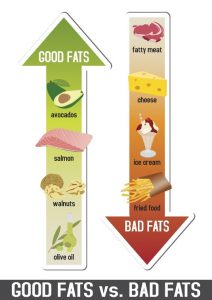 The sample size was large enough and the dietary information complete enough for the investigators to also estimate the effect of substituting olive oil for other dietary fats and oils.
The sample size was large enough and the dietary information complete enough for the investigators to also estimate the effect of substituting olive oil for other dietary fats and oils.
They found that every ¾ tablespoon of olive oil substituted for an equivalent amount of:
- Margarine decreased total mortality by 13%.
- Butter decreased total mortality by 14%.
- Mayonnaise deceased total mortality by 19%
- Dairy fat decreased total mortality by 13%.
-
- The same beneficial effects of substituting olive oil for other fats were seen for cause-specific mortality (cardiovascular disease, cancer, respiratory disease, and neurodegenerative disease).
-
- There was a linear dose-response. This means that substituting twice as much olive oil for other dietary fats doubled the beneficial effects on total and cause-specific mortality.
- However, substituting olive oil for polyunsaturated vegetable oils had no effect on total and cause-specific mortality.
Now I can fill in the remaining blanks in the author’s conclusion: “We found that greater consumption of olive oil was associated with lower risk of total and cause-specific mortality. Replacing other types of fat, such as margarine, butter, mayonnaise, and dairy fat, with olive oil was also associated with a lower risk of mortality. Our results support current dietary recommendations to increase the intake of olive oil and other unsaturated vegetable oils in place of other fats to improve overall health and longevity.”
What Does This Study Mean For Us?
 As I said above, this is an association study, and association studies do not prove cause and effect. However:
As I said above, this is an association study, and association studies do not prove cause and effect. However:
1) This is a very strong association study because:
-
- It is a very large study (92,383 participants).
-
- It followed the participants over a long time (28 years).
-
- It utilized a very precise dietary analysis.
-
- Most importantly, it tracked the participant’s lifestyle, dietary intake, and health at regular intervals throughout the study. Most association studies only measure these variables at the beginning of the study. They have no idea how they change over time.
2) This study is consistent with several previous studies showing that olive oil consumption decreases the risk of dying from heart disease.
3) This study draws on its large population size and precise dietary analysis to strengthen and extend the previous studies. For example:
-
- The study showed that increased olive oil consumption also reduced total mortality and mortality due to cancer, respiratory disease, and neurodegenerative disease.
-
- The study measured the effect of substituting olive oil for other common dietary fats.
-
- The study showed that increased olive oil consumption in the context of the American diet was beneficial.
I should point out that the headlines you have seen about this study may be misleading.
- While the headlines may have depicted olive oil as a superfood, this study did not find evidence that olive oil was more beneficial than other unsaturated vegetable oils. Again, this is consistent with many previous studies showing that substituting vegetable oils for other dietary fats reduces the risk of multiple diseases.
- The headlines focused on the benefits of increasing olive oil consumption. However, they neglected the data showing that increasing olive oil (and other vegetable oils) was even more beneficial (35% reduction in total mortality) in the context of a healthy diet – one with increased intake of fruits, vegetables, whole grains, nuts, legumes, and long-chain omega-3s and decreased intake of red & processed meats, sodium, and trans fats.
So, my recommendation is to follow a whole food, primarily plant-based diet and substitute extra-virgin olive oil and cold pressed vegetable oils for some of the animal fats in your diet.
Some vegan enthusiasts recommend a very low-fat whole food plant-based diet. They point to studies showing that such diets can actually reverse atherosclerosis. However:
- Those studies are very small.
- The overall diet used in those studies is a very healthy plant-based diet.
- The studies did not include a control group following the same diet with olive oil or other vegetable oils added to it, so there is no comparison of a healthy vegan diet with and without vegetable oils.
If you have read my book, “Slaying the Food Myths”, you know that my recommendations encompass a variety of whole food, primarily plant-based diets ranging all the way from very-low fat vegan diets to Mediterranean and DASH diets. Choose the one that best fits your food preferences and the one you will be most able to stick with long term. You will be healthier, and you may live longer.
The Bottom Line
A recent study looked at the effect of olive oil consumption on the risk dying from all causes and from heart disease, cancer, respiratory disease, and neurodegenerative diseases. When the study compared people consuming the highest amount of olive oil (>0.5 tablespoon/day) with people consuming the least olive oil (0 to 1 teaspoon/day):
- Mortality from all causes was decreased by 19% for the group consuming the most olive oil.
They also found that the group who consumed the most olive oil reduced their risk of dying from:
- Cardiovascular disease by 19%.
- Cancer by 17%
- Respiratory disease by 18%.
- Neurodegenerative disease (cognitive decline and Alzheimer’s disease) by 29%.
They also found that every ¾ tablespoon of olive oil substituted for an equivalent amount of:
- Margarine decreased total mortality by 13%.
- Butter decreased total mortality by 14%.
- Mayonnaise deceased total mortality by 19%
- Dairy fat decreased total mortality by 13%.
- However, substituting olive oil for polyunsaturated vegetable oils had no effect on total and cause-specific mortality.
The authors concluded, “We found that greater consumption of olive oil was associated with lower risk of total and cause-specific mortality. Replacing other types of fat, such as margarine, butter, mayonnaise, and dairy fat, with olive oil was also associated with a lower risk of mortality. Our results support current dietary recommendations to increase the intake of olive oil and other unsaturated vegetable oils in place of other fats to improve overall health and longevity.”
For more details and a summary of what this study means for you, read the article above.
These statements have not been evaluated by the Food and Drug Administration. This information is not intended to diagnose, treat, cure or prevent any disease.

